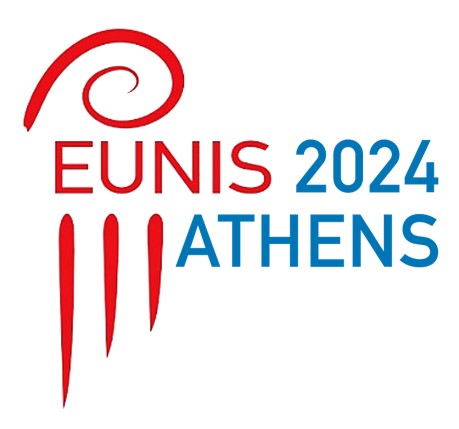This session consists of three presentations.
Featured Speakers
Konstantinos Tsimpanis, :
UDReady: a Data – Driven Platform Measuring Digital Readiness of Higher Education Institutions #86
The rapidly evolving landscape of Higher Education and the increased demands of our digital society make it imperative for Higher Education Institutions to adopt mechanisms for assessing their Digital Readiness levels. Towards this direction, within the DigiReady+ project, a data-driven framework for the measurement of Digital Readiness in Higher Education has been proposed. In this paper, we present the UDReady platform, an information system that is based on the proposed framework and allows Higher Education Institutions to assess their Digital Readiness based on data available from their heterogeneous information systems.
Download the presentation
Zisis Manouskos:
Using Large Language Models to assess Digital Readiness of a Higher Education Institution #89
Measuring the Digital Readiness of a Higher Education Institution (HEI) is an important step in the process of achieving institutional digital maturity. While most often the digital readiness is measured using surveys answered by stakeholders, a new approach, proposed by the DigiReady+ framework, is to use institutional data, following a data-driven approach, that allows for more objective and evidence-based assessment. In the process of implementing such an approach, we identified two kinds of dimensions of digital readiness that need to be measured, i.e., those that can be based on quantitative institutional data and those that are of more qualitative nature. Examples of the first are the Digital Infrastructure, Digital Teaching, and Learning, etc., while examples of the latter refer to Leadership, Government, Strategy and Policies. The level of readiness for the second kind of dimensions is based usually on institutional documents, that are not necessarily widely known. In this study we attempted to automate the process of assessing these dimensions, using Large Language Models. Interesting results are reported that can lead to automating the process and integrating these techniques in the data-driven measurement of HEI’s digital readiness.
Download the presentation
Alejandro Ortega-Arranz:
DR+ Knowledge Repository: Supporting the Digital Readiness of Higher Education Institutions #91
Digital Transformation is nowadays attracting the attention of national governments (e.g., Hellenic Republic (2021), Gobierno de España (2021)) and Higher Education Institutions (HEIs) (CRUE, 2021). Within the context of Digital Transformation, the term Digital Readiness defines the preparedness of organizations, such as HEIs, to integrate and adopt digital technologies into their operations, strategies, and culture (Chounta et al.). The DigiReady+ project aims at developing a set of conceptual (e.g., a framework) and technological (e.g., a web-based tool) contributions to measure and support the Digital Readiness of HEIs (Tsimpanis et al. 2023). This presentation will introduce and discuss one of the outcomes of the project: The DR+ Knowledge Repository (https://digiready.gsic.uva.es/). This repository aims at storing multiple types of resources (e.g., national documents, videos, research publications) dealing with the different aspects (aka. dimensions) of Digital Readiness for HEIs. The repository incorporates an Application Programming Interface (API) that allows its integration with other systems. One of these systems is the UDReady+, a web-based tool developed within the context of the project that allows HEI managers to measure the Digital Readiness of their organizations. Thus, the UDReady+ tool interacts with the repository so that it can recommend specific resources to help improve the digital readiness of each HEI based on the obtained results. Given this context, the usefulness of the repository strongly depends on the usefulness of the hosted resources and the recommendations given. The repository was populated following a two-step process in which both researchers and stakeholders (e.g., HEI managers, technicians, teachers) participated. The repository currently stores more than 50 resources, in four different languages (i.e., Greek, German, Spanish and English), targeting the different Digital Readiness dimensions. The authors welcome resources and ideas that might help improve the features and functionality of the repository.
Download the presentation



